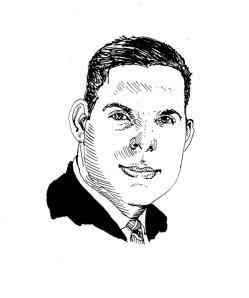 On both sides of the Atlantic, bankers have faltered in the public-relations management of new profit reports. Many of the largest banks, among them both willing and grudging recipients of government support, have reported heady profits for the year just ended. The disconnect between the performance of banks and the middling performance of businesses in other sectors of the American economy has cemented the popular discontent with the handling of the banking crisis, and the disaffection with the banks themselves. The most profitable banks’ attempts to fend off a public backlash, through reduced compensation ratios, charitable contributions and public demonstrations of circumspection, have failed to beguile a cynical and recession-weary population.
On both sides of the Atlantic, bankers have faltered in the public-relations management of new profit reports. Many of the largest banks, among them both willing and grudging recipients of government support, have reported heady profits for the year just ended. The disconnect between the performance of banks and the middling performance of businesses in other sectors of the American economy has cemented the popular discontent with the handling of the banking crisis, and the disaffection with the banks themselves. The most profitable banks’ attempts to fend off a public backlash, through reduced compensation ratios, charitable contributions and public demonstrations of circumspection, have failed to beguile a cynical and recession-weary population.
The goal of interventions like the Troubled Asset Relief Program has been to stabilize the financial system, but it seems as though the banks have proven too resilient for the public’s taste. The fact of multibillion-dollar bonus payments—coinciding with double-digit unemployment and stagnating real wages—has reinforced the perception that financial professionals operate in an environment detached from Main Street. And while the idea of a culturally and socioeconomically homogenous Main Street that serves as a counterpoint to Wall Street is a bizarre oversimplification, I imagine that recent reports from New York City must seem increasingly surreal the farther one lives from a coast.
The question of how to respond to bank profits and compensation has been scarcely informed by our rational capacities. Rather, arguments on both sides of the debate have been punctuated by occasions of demagoguery and appeals to our baser instincts. Just days before a Massachusetts verdict on the administration’s first year, hard lines dominate in a severe contest for voter support and a balance of power in the Senate.
In proposing a new bank levy last Thursday, President Obama was unequivocal: “My commitment is to recover every single dime the American people are owed. And my determination to achieve this goal is only heightened when I see reports of massive profits and obscene bonuses at the very firms who owe their continued existence to the American people.” Lest the message be lost, this Saturday’s weekly address from the White House was titled “Getting Our Money Back From Wall Street.” Unconstrained by political niceties, Paul Krugman was exceedingly direct in his Jan. 14 New York Times op-ed: “As Congress and the administration try to reform the financial system, they should ignore advice coming from the supposed wise men of Wall Street, who have no wisdom to offer.” For their part, bank executives have intimated that any new tax on profits will slow the sector’s recovery and, by extension, recovery in markets thirsty for credit.
One’s perspective is crucial in all of this. To the public, JPMorgan Chase’s estimated salary and bonus compensation of $27 billion might seem purposely provocative. But it is less so when one considers that the firm has roughly 200,000 employees on its payroll. The bank’s chairman and chief executive, Jamie Dimon, said that earnings “fell short of both an adequate return on capital and the firm’s earnings potential.” Nor were investors overawed by the results. At least one analyst described the earnings report as “disappointing.”



